This article is based primarily on the October 17, 2023, USDA Crop Bulletin which covers the week ending October 15, 2023. The full USDA Crop Bulletin can be accessed HERE
It is back to looking like an average crop or perhaps even a bit less than average. But there is lots of corn which is usually more profitable than soybeans.
This article includes a short international review of agricultural conditions which are generally favorable. I also included U.S. crop-related weather forecasts. And there is a report on production forecasts. It is a long report and we show the Table of Contents, a summary of key points, and the link to the full report.
We first take a look at the frost/Freeze and other warnings.
Now on to the National Agriculture Summary. The Tables below the summary have additional data. The boxes with my comments may be incomplete so for crops of interest check the data out yourself to be sure.
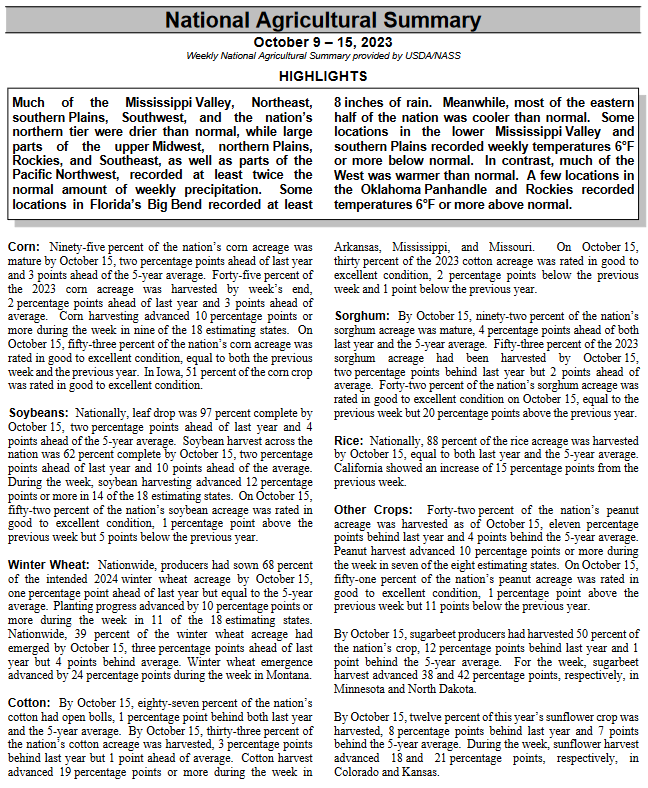
| Below is pretty much the same information in table format. However, there is a lot of additional information in these tables. |
–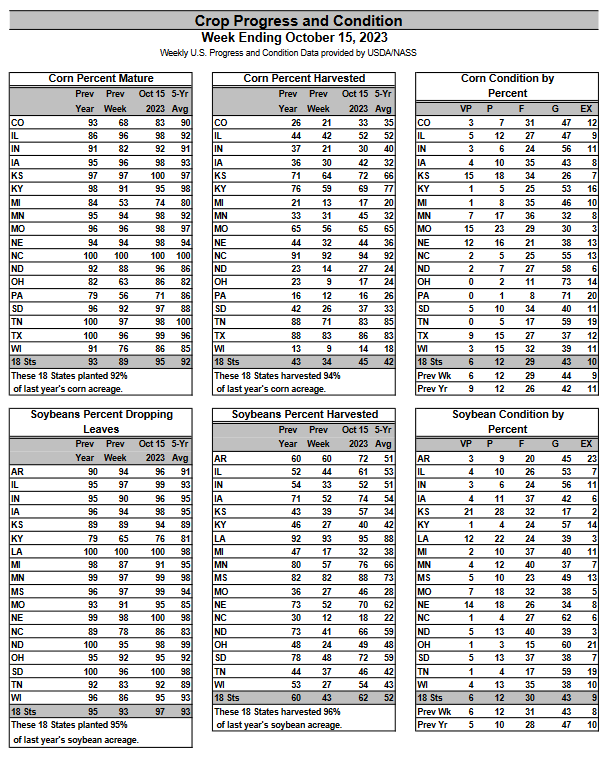
| Corn has recovered from earlier this year to now be even better than last year and the 5-Yr Average would be amazing but it seems is mostly about more corn being planted this year. Soybeans are performing above their five-year average but previously we learned that the number of acres planted was less than last year. So production is forecast to be down by four percent. Thus you can see that the progress reports can be misleading. The progress reports are relative to the acres planted. So the percentage reaching a given stage of production may be high or low but if the number of acres planted is lower or higher, the potential harvest may be higher or lower. It gets complicated. |
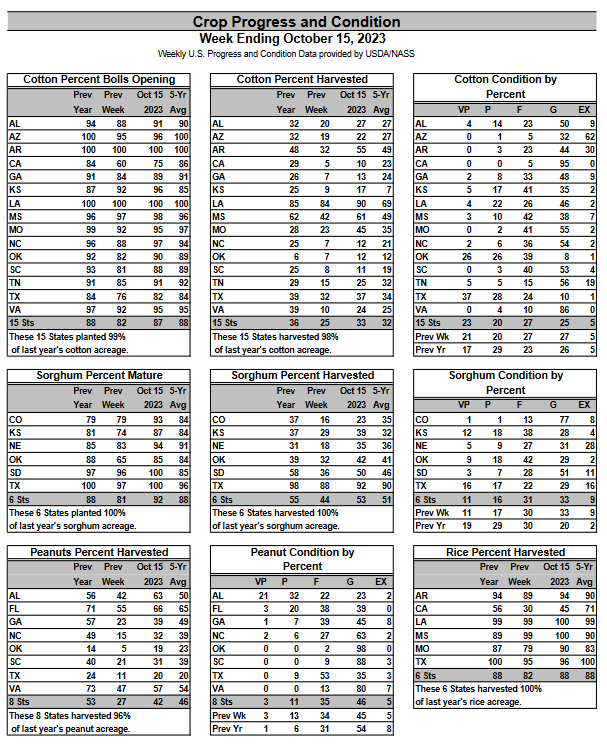
| Cotton is now in line with the five-year average in terms of progress but the forecasted yield is very low. I am not sure why that is. Sorghum now exceeds its 5-Yr average with the crop condition much improved over last year. Peanut conditions continued to lag last year. Rice is in line with its 5-yr average. |
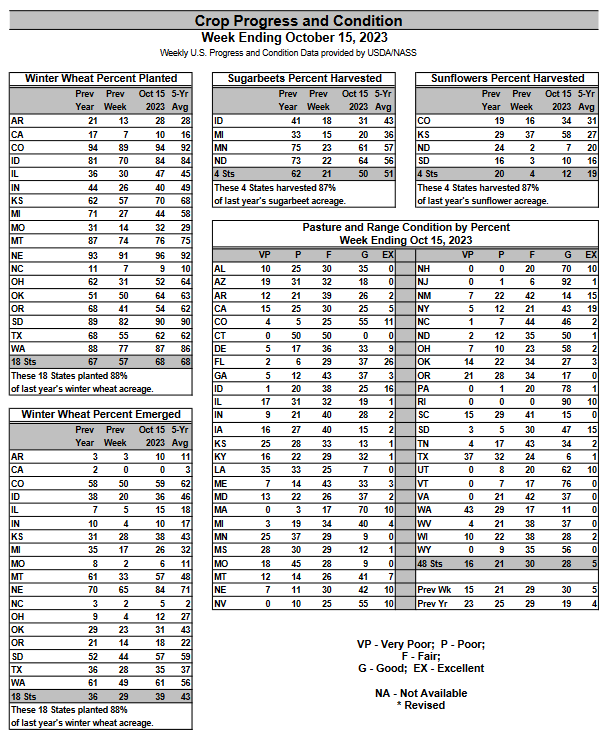
| The harvesting of sugarbeets has just started but is slower than last year but in line with the 5-Yr Average. The planting of winter wheat is about even with last year and even with their 5-Yr average. The pasture conditions are better than last year but not dramatically. |
Some additional detail is provided HEREIt is mostly some additional weeks of data and it is all in larger print. |
Let us take a look at the weather forecasts.
| 6
– 10
|
|
|
| 8
– 14 |
|
|
| 3
– 4 |
|
|
HAZARDS OUTLOOKS
Here is the latest Day 3 -7 and Day 8 – 14 hazards forecasts which are updated only on weekdays. I think it supplements the standard weather forecast.
| You can track the situation daily by accessing our Daily Weather forecast which you can access HERE. But the weather outlook maps in this article also update. Of interest are the areas of reduced precipitation. |
Looking at the month-to-date precipitation

| You can see the wet and dry areas. The first 17 days of October were mixed in terms of the location of precipitation. |
The NASS Report of the Week. This week we report on Production. This differs from the Progress reports that are available every week and are an attempt to report of actual production or forecasted production.
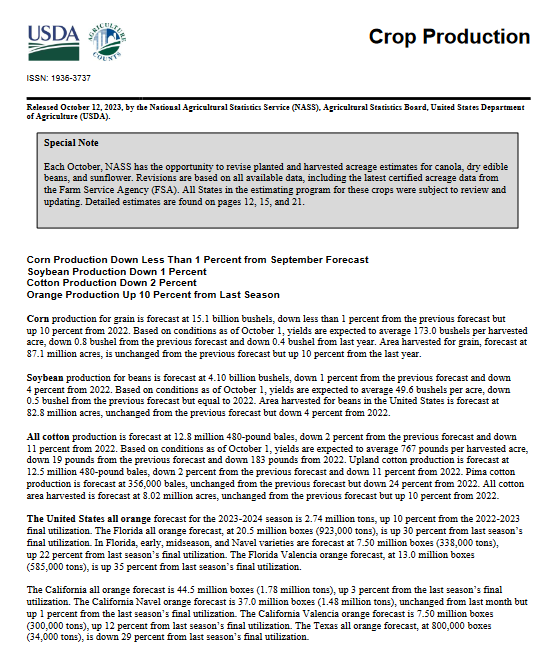
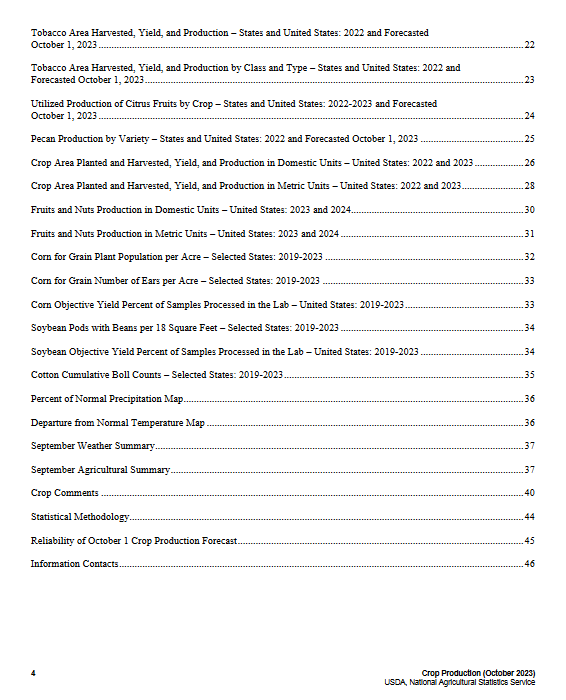
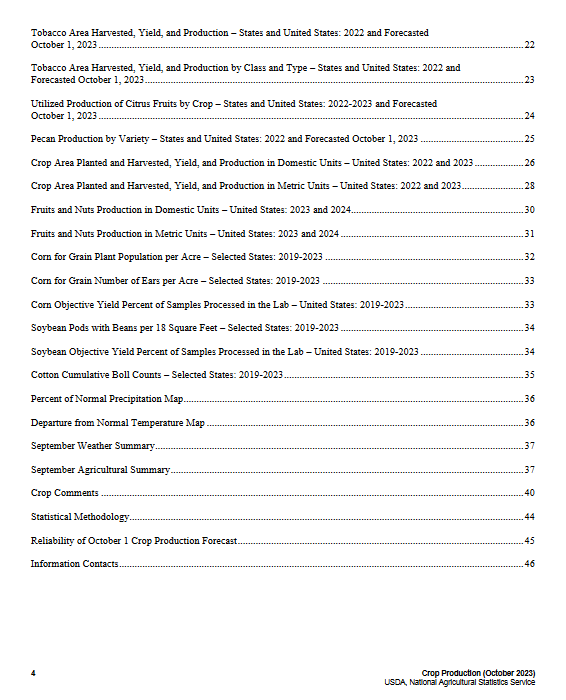
| The full report can be accessed HERE. As you can see it is a long report but worth reading. |
International
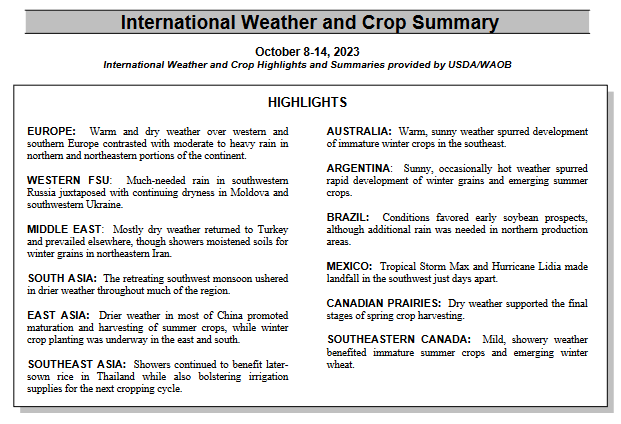
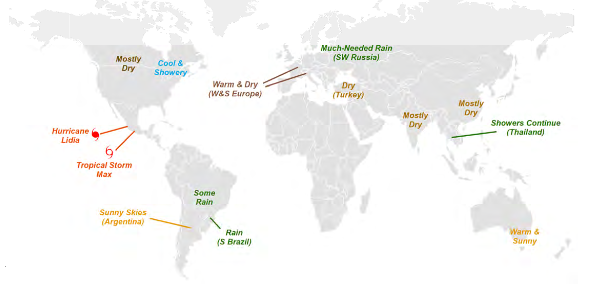
| The table and the map show weather impacts on crops internationally |
Sources of Information
Weekly Updates can be found HERE
and perhaps more directly HERE
Additional Useful Sources of Information
WASDE: World Agricultural Supply and Demand Estimates HERE
NASS Report Schedule HERE
Executive Briefings HERE
Economics and Prices HERE
Office of the Chief Economist HERE.
Drought information by crop HERE
–
| I hope you found this article interesting and useful. |
